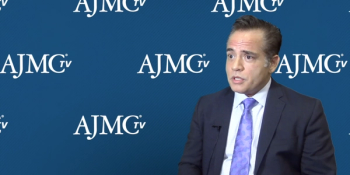
Part of the reason COA recommended a 'ramp up' period is we need time for the vendors to understand what they need to be incorporating in their software, said Michael Diaz, MD, president of Community Oncology Alliance.

Part of the reason COA recommended a 'ramp up' period is we need time for the vendors to understand what they need to be incorporating in their software, said Michael Diaz, MD, president of Community Oncology Alliance.

"I am not convinced yet that the Oncology Care First Model truly takes into account necessary elements, including high-cost drugs," said Lucio Gordan, MD, president and managing physician at Florida Cancer Specialists.
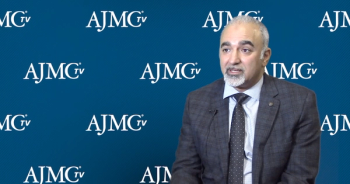
"There is this mentality that hospice means the patient is going to die very soon, and that's really not true," said Maen Hussein, MD, physician director of finance at Florida Cancer Specialists.
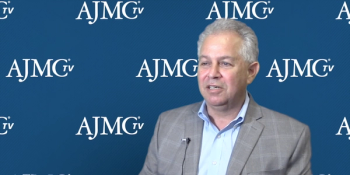
Sharing records and encouraging conversation will promote better collaboration between primary care and cancer care, said Jeffrey Lowenkron, MD, chief medical officer of The Villages Health.

"We want to make sure practices have time to learn, understand, adapt, and modify, to a new Oncology Care Model," said Michael Diaz, MD, president of Community Oncology Alliance.

Educating primary care providers and patients on accessible lung cancer screenings can help reduce lung cancer mortality, said Maen Hussein, MD, physician director of finance at Florida Cancer Specialists.

There has been significant improvement in payers' understanding of site of care issues, but steps still need to be taken to address these issues, said Lucio Gordan, MD, president and managing physician at Florida Cancer Specialists.
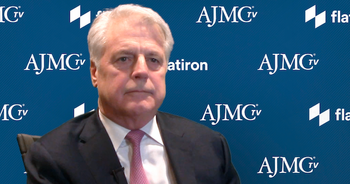
Richard Snyder, MD, executive vice president of Facilitated Health Networks and chief medical officer at Independence Blue Cross, discusses key features that payers should include when implementing a value-based agreement.

Richard Snyder, MD, executive vice president of Facilitated Health Networks and chief medical officer at Independence Blue Cross, discusses the role of data exchange and analytics in value-based agreements.

Population health management and coordination of care are integral to value-based contracting, explained Richard Snyder, MD, executive vice president of Facilitated Health Networks and chief medical officer at Independence Blue Cross.

Richard Snyder, MD, executive vice president of Facilitated Health Networks and chief medical officer at Independence Blue Cross, explains how value-based agreements can benefit providers, patients, and payers.

Richard Snyder, MD, executive vice president of Facilitated Health Networks and chief medical officer at Independence Blue Cross, discusses how the increasing share of novel, costly therapies will impact the prevalence of value-based agreements.
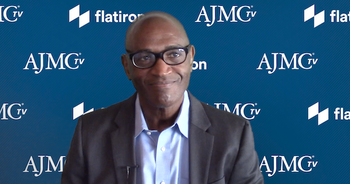
The main thing that the Oncology Care Model (OCM) has brought is a shift in the mindset, said Terrill Jordan, chief executive officer of Regional Cancer Care Associates.
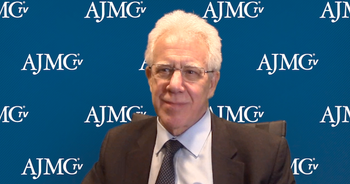
Lawrence N. Shulman, MD, director of the Center for Global Cancer Medicine at the Abramson Cancer Center, and professor of Medicine at the Hospital of the University of Pennsylvania, explains how providers are reacting to more effective, more costly therapies entering the cancer landscape.

Terrill Jordan, chief executive officer of Regional Cancer Care Associates, discusses Oncology Care Model performance period 4 results and the biggest challenges community oncologists continue to face when trying to perform under the model.
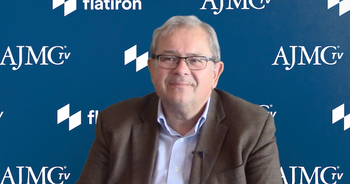
Michael Kolodziej, MD, vice president and chief innovation officer at ADVI Health, Inc., discusses the move to 2-sided risk in the Oncology Care Model (OCM).

CMS is trying to make a 2-sided risk model in the Oncology Care Model enticing for practices, but there is still a lot of math practices need to work out before making the decision, said Blase Polite, MD, associate professor of medicine and the executive director for accountable care at the University of Chicago.
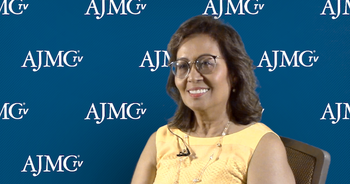
Lani M. Alison, BSN, MS, HCQ, PCMH, CCE, vice president of Clinical Affairs, Regional Cancer Care Associates, explains how the implementation of the Oncology Care Model (OCM) allowed practices to better integrate palliative care.
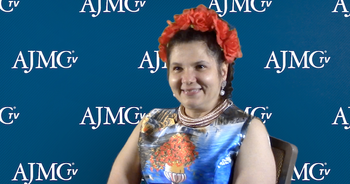
Innovation that transform cancer care delivery have to be multi-level, explained Iuliana Shapira, MD, chief medical officer, Regional Cancer Care Associates.

Lani M. Alison, BSN, MS, HCQ, PCMH, CCE, vice president of Clinical Affairs, Regional Cancer Care Associates, explains the questions that patients have about oncology care pathways and treatment guidelines.

Iuliana Shapira, MD, chief medical officer, Regional Cancer Care Associates (RCCA), discusses how RCCA is managing the higher costs of immuno-oncology drugs in value-based care.

Lani M. Alison, BSN, MS, HCQ, PCMH, CCE, vice president of Clinical Affairs, Regional Cancer Care Associates, discusses how providers discuss the Oncology Care Model (OCM) with patients and the questions they ask about it.

Iuliana Shapira, MD, chief medical officer, Regional Cancer Care Associates (RCCA), discusses how data analytics have improved RCCA’s revenue cycle.

Innovation is being used to improve quality metrics in oncology care at the patient forefront and in data, explained Lani M. Alison, BSN, MS, HCQ, PCMH, CCE, vice president of Clinical Affairs, Regional Cancer Care Associates.

Jason Mitchell, MD, chief medical and clinical transformation officer, Presbyterian Healthcare Services, discusses the role primary care will play in the transition to value-based care.

Jason Mitchell, MD, chief medical and clinical transformation officer, Presbyterian Healthcare Services, discusses the role of commercial payers in the shift toward value-based care.

Data is critical to all value-based care, said Jason Mitchell, MD, chief medical and clinical transformation officer, Presbyterian Healthcare Services.
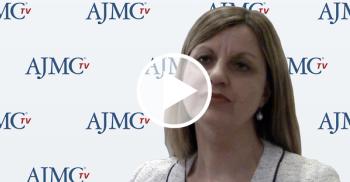
Diabetes is a self-managed disease, which makes the role of diabetes education crucial in order for patients to succeed in managing their disease, said Kellie Rodriguez, RN, MSN, MBA, CDE, director, Global Diabetes Program, Parkland Health & Hospital System.

Diabetes educators can help patients with diabetes who face financial challenges make appropriate choices and receive assistance to afford medications, said Kellie Rodriguez, RN, MSN, MBA, CDE, director, Global Diabetes Program, Parkland Health & Hospital System.

The person-centered factors that drive outcomes in diabetes requires hospital systems that can actually address those needs, said Kellie Rodriguez, RN, MSN, MBA, CDE, director, Global Diabetes Program, Parkland Health & Hospital System.

259 Prospect Plains Rd, Bldg H
Cranbury, NJ 08512
© 2025 MJH Life Sciences®
All rights reserved.
